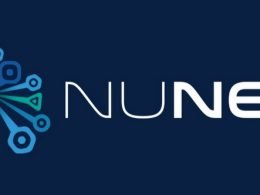Johannes Gensfleisch zur Laden zum Gutenberg, better known as Johannes Gutenberg, was a German goldsmith, inventor of the modern printing press with movable types, around 1440, which allowed a revolution in the industry of written publications, mainly that of books.
The literary industry is one of the oldest industries in the world, and some companies in the sector are hundreds of years old. Many of these publishers still operate under centuries-old business models.
The technology has allowed a great advance in the industry, but it remains centralized and not scalable. In the first decade of this century, Amazon radically changed the publishing industry when it launched its first Kindle reader. Since then, there have only been minor technological advances, when you can see huge advances in other industries today. This is largely due to the interest in centralizing and controlling the publishing industry.
Anyone who has ever bought an e-book (or audiobook) did not actually buy the digital book, but a license to read (or listen to) the book. There is no actual property. Once you’ve read an ebook (or listened to an audiobook), you’ll keep it on your digital shelf, unable to sell or transfer it to someone else.
The team tells us that there are five large publishers that control almost 66% of this industry, and this centralization is dangerous for humanity, since the authorities can control the information, and prevent people from accessing the books.
The Book Token team believes that it is a right for people to own their own books.
With the invention of blockchain and Web3 technologies like NFT (Non Fungible Token), there is now the ability to create unique and individual digital objects.
There are millions of cryptocurrency holders around the world and adoption is on the rise, with over 1.1 billion people buying a digital book in the next 12 months. Combining both worlds is a proposal that looks reasonably successful.
By using the blockchain infrastructure, along with smart contracts and decentralized storage, Book Token is creating the ability to have unique digital book assets, which are fully decentralized, as well as fully encrypted, all stored on the blockchain.
This will evolve the current digital publishing industry, and seek to transform the license-based industry to a digital ownership model.
Readers will have the ability to sell their ebooks or audiobooks on an open marketplace. They will also be able to earn tokens based on reading/listening progress, or share a digital book as a physical book. They will be able to buy a single book in multiple languages and combined audio. They will be able to trade the $BOOK token for other cryptocurrencies on decentralized exchanges. It will give the educational system a tool with verified reading, and a continuous historical record of consumption.
Publishers and authors will have the ability to get paid via smart contracts on all sales, including secondhand, opening up a whole new revenue stream in perpetuity. It will provide the security of digital rights management, which will prevent digital counterfeiting. There will also be the possibility for publishers to transfer sales rights. Unique collectible digital editions of books will be able to be produced, with author-to-reader communication capabilities, along with publisher marketing tools, that do not currently exist for authors. There will be the ability to print ebooks and audiobooks to be truly bundled and securely tracked, and thus the ability for independent authors to earn better income.
Open source Proof of Stake (PoS) technology makes NFT-based eBooks possible, with fees that are predictably lower than Proof of Work (PoW) models. That is why the team chose to build the initial version of BOOK Token on the Cardano platform, the leading PoS blockchain.
The following chart outlines the basic flow of the ecosystem from publishers to readers:
Early iterations have focused primarily on collectible digital artwork, where the NFT acts as a purchase receipt with a metalink to a publicly viewable image. This third generation of NFTs is based on utility such as “Decentralized Encrypted Assets” (DEAs). This is revolutionary because it allows the ownership of the digital medium, being able to transfer it in a sale, but maintaining the author’s license rights. The content of NFTs is not publicly displayed on the blockchain.
The platform has an integrated eReader DApp to access the reading of each purchased book. There will be a Mobile App that will be available on the App Store (Apple) and on Google Play (Android).
The Tokenomics
BOOK Token Utility Coin [$BOOK] will be sold privately in multiple rounds, and publicly as an Initial Exchange Offer (IEO).
On June 2, 2021, 10 billion [$BOOK] tokens were minted as native tokens on Cardano. This is a fixed supply and no more tokens will be created. You can see their broadcast on CardanoScan.
The distribution is as follows:
- 3 billion (30%) for Reader Rewards (we also call it “Reader Mining” and “Knowledge Mining”)
- 2.5 billion (25%) for fundraising
- 3 billion (30%) for equipment and purchases
- 1,500 million (15%) reserved for future development of the platform
Having a native utility token has a multitude of benefits, the main ones being:
- Rewarding users for reading your books, called “reader mining” and “knowledge mining” “. As reading technology verifies what content users read or listen to, they earn $BOOK tokens.
- Buy new books, although it is not mandatory, since fiat currencies and other cryptocurrencies will be accepted as a form of payment.
- Pay transfer fees and book royalties within the ecosystem to Publishers, Authors, and the Book Token Platform for operating costs.
- For advertising in the seller’s ecosystem.
- Preserve and ensure that future platform development and engineering costs are covered.
The Roadmap
To create the BOOK ecosystem, there are multiple phases of prerequisites for entering the publishing market. Some of these tasks could come from the acquisition of existing contracts and/or technology.
1. PHASE 1: GENESIS
- Initial Fundraising
- Team Creation
- Industry Partnerships
2. PHASE 2: FOUNDATION
- Infrastructure for NFT Books
- DRM encryption
- Smart Contracts
- NFT Gating
- Book Club Functionality
- Transitive Royalties
3. PHASE 3: MAIN NET PUBLIC LAUNCH
- Fully Decentralized Encrypted NFT eBooks
- First Decentralized Encrypted Assets (DEAs)
- Anonymous Browser-based Open eReader
4. PHASE 4: MORE BOOK NFTS + $BOOK TOKEN
- More NFT Book Releases
- Marketplace and P2P Exchange Launch
- Public Crowd Sale of $BOOK Utility Tokens
- Onboarding of Publisher Catalogs
5. PHASE 5: BUILD, BUILD, BUILD
- Mint+Print™ Book Bundling
- Asset Management/Internal Wallet Generation
- Multi-Chain Integration
- Bulk NFT Distribution
- Mobile App Release
- Read-to-Earn launch
- Audiobook Integration
- Multi-language Support
- Accessibility
6. PHASE 6: SCALING
- Fully Decentralized Reader
- SDKs for any external reader implementation
- Author/Publisher Tools, Enterprise Marketing System
- SmartContract WYSIWYG
7. PHASE 7: GOVERNANCE
- Fully Decentralized eReader
- Autonomous Key Management dApp
- Development Voting platform
The Team
The BOOK Token team tells us, who previously created and sold an e-book platform and distribution company that had over 6,000,000 registered users. As the first device-independent eReader, it grew rapidly.
Choosing to work with publishers, rather than against them, the catalog contained more than 186,000 publishers and imprints worldwide, including the Big 5 catalogs (Penguin/Random House, Hachette, Harper-Collins, Simon & Schuster, and Macmillan ) and represented millions of books.
Joshua Stone, Co-Founder & CEO, tells us that he has more than 25 years of experience in technology. In 1999 he worked on the first version of Fandango.com, then led AT&T’s interactive marketing teams and followed the Hotels.com Product/UX team. Josh has been involved with two start-ups, Big Jump Media (GodTube.com) and BookShout.com, where he was president and chief product officer. Most recently, he served as CEO of a NYT-BestSelling Author digital training platform.
Ben Illian, Co-Founder & Chief Growth Officer, says he has led teams as VP of Marketing and Sales, Product Owner, Social Media Manager and Chief Growth Officer. Working with Josh, Ben has been part of two start-ups and now works full-time as a Growth Officer, coming up with innovative ways to maximize revenue, reduce acquisition costs and deliver the best customer journey.
You can see the rest of the members here.
. . .
Late-breaking Note: no development is safe from hacks. It is the developers’ response to them that is important.
. . .
Platform: https://www.booktoken.io









